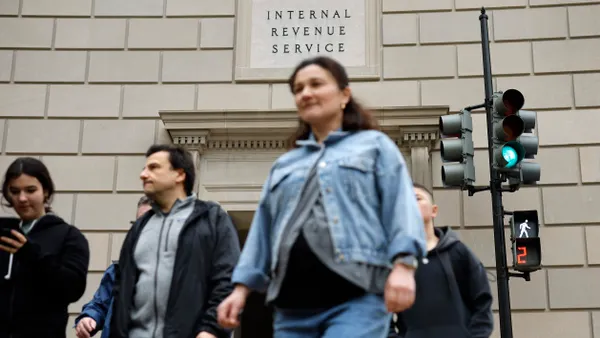When the Biden administration launched the “Time Is Money" campaign in August, it pushed an initiative to crack down on businesses that purposefully provide poor customer service in an effort to maximize profit.
The effort highlighted work by the Federal Trade Commission, Department of Transportation and Consumer Financial Protection Bureau to protect consumers from subscription traps, junk fees, “doom loops” and more.
But the initiative and other consumer protection efforts from federal agencies under the current administration have a murky future. While Vice President Kamala Harris promises to continue such efforts should she assume the presidency, former President Donald Trump promises to expand on his policy of deregulation if he returns to the White House.
Neither campaign responded to CX Dive’s request for comment.
“It's fairly likely that under the Harris administration, we would see a continuation of support for the FTC setting standards like ‘click to cancel,’” said Judy Weader, principal analyst at Forrester.
Trump, on the other hand, is expected to focus his efforts on supporting businesses.
“He's decidedly pro-business so that would be infused throughout,” Weader said. “He'd already signaled it during his first administration that he wasn't really a fan of things like the Consumer Financial Protection Board.”
Where Trump stands
While Trump’s platform makes no mention of consumer protection regulations, he has promised the “most aggressive regulatory reduction” if reelected.
Trump said he would eliminate 10 rules for every new one instated. It would mark an expansion of the deregulation policy of his first administration in which he promised to slash two regulations for every new regulation proposed.
Trump could decide to roll back some consumer protection regulations that businesses have taken issue with, but that process faces challenges. Most deregulatory actions have to take the same steps as regulatory actions, including a notice and comment process, and Trump’s efforts to deregulate during his first term were often challenged and hampered in court, according to Brookings.
Experts expect that the rigor of enforcement under a second Trump term might be more lax, and he could replace agency leaders with more pro-business appointees.
“Under a Trump administration, we would probably see closer to what we had seen during his first administration,” Weader said. “So the FTC would probably be coming after fewer things, and I wouldn't be surprised [if] we might see some changes on the commission as well.”
In his first term, Trump appointed to lead the CFPB Mick Mulvaney, a staunch critic of the bureau. During that time, the consumer watchdog levied fines as low as $1.
Regulations already on the books are going to be harder to roll back than those still in the rulemaking process. The FTC’s “click-to-cancel” rule, for example, was finalized last month and most of the provisions go into effect in mid-2025.
“Those are rules that are on the books that the FTC now has a duty and an obligation to enforce,” said Jimmy Wyderko, spokesperson for the American Economic Liberties Project. “Depending on who the next slate of antitrust enforcers are, the rigor of enforcement of those rules might change.”
There are also those rules that have broad support from consumer protection groups and businesses that are less likely to come under crosshairs. The FTC’s rule banning fake reviews, for example, was welcomed by businesses that had been plagued by fake reviews misleading customers.
Other rules have been codified into legislation. A DOT rule that requires airlines provide automatic refunds to consumers was codified in the latest Federal Aviation Administration legislation.
One place where Trump may pursue tighter regulations is monopolization of Big Tech, which has a big impact on consumers.
“When it comes to Trump, obviously it's a bit of a question mark with where his head is at these days,” Wyderko said. “But many of the Big Tech cases started under his term. His Justice Department was the one to initially sue Google for monopolizing its search platform.’”
Where Harris stands
Harris is largely expected to continue the consumer protection legacy of the Biden administration.
“Harris has also been a part of the Biden-Harris administration, and this is an administration that is extremely aggressive at confronting corporate power,” Wyderko said.
Harris’ economic policy blueprint sets out to lower costs for Americans by protecting them from junk fees and fraud.
“A Harris-Walz Administration will fight to protect American consumers,” the proposal states. “They will continue to take on the everyday hassles that waste Americans’ time and money, whether these be subscriptions, insurance claims, or other types of customer service doom loops and dead ends.”
The policy proposal specifically highlights Harris’ leadership to the “Time Is Money” initiative as well as her experience prosecuting fraud cases as California’s attorney general.
Harris also laid out a plan to ban price gouging during times of crises — which was met with Trump accusing her of “communist” price controls.
Though Harris is expected to largely continue Biden’s consumer protection agenda, some progressives worry that Harris could replace FTC Chair Lina Khan with someone who is less active in cracking down on big corporations.












